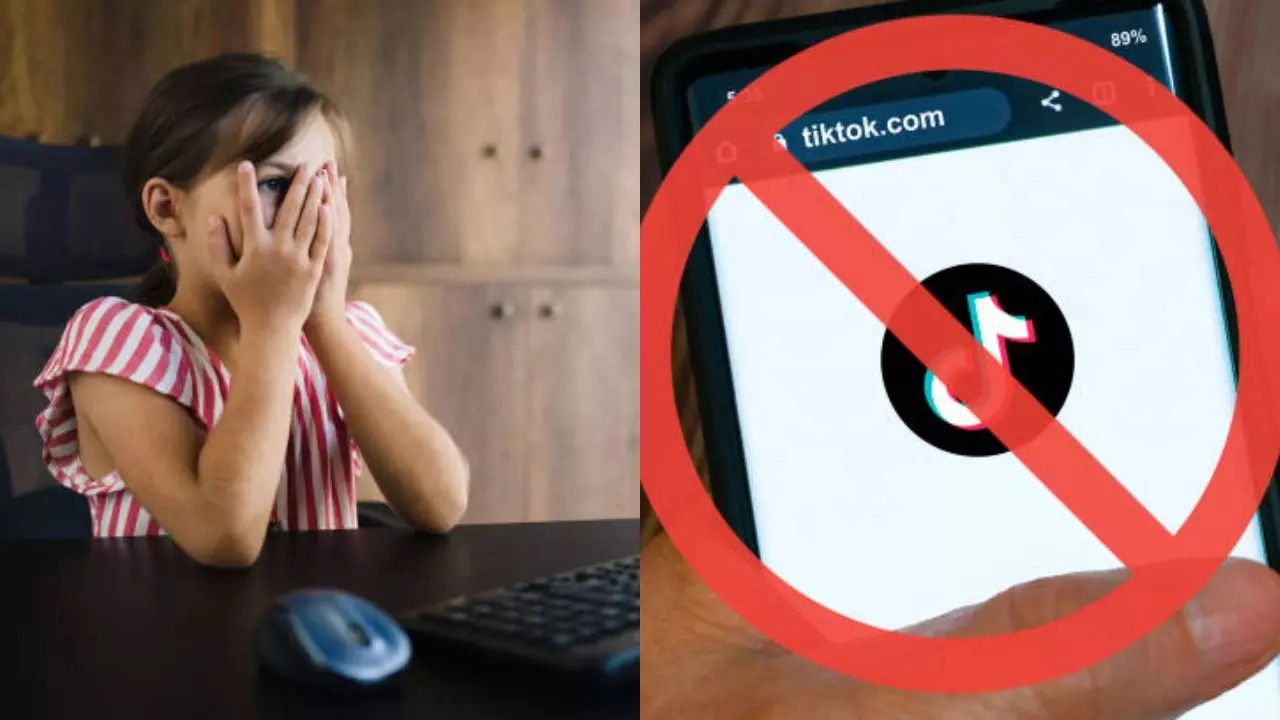News
Australia Bans Social Media For Under 16s – Should India Follow To Protect Young Minds?

Australia Bans Social Media For Under-16s – Should India Follow To Protect Young Minds? (Image Credits: iStock)
Social media has been both a boon and a bane for kids. Post Covid-19 pandemic education has drastically changed for kids. From notes and live classes to keeping in touch with your loved ones via WhatsApp or sharing memes on social media everything is now available online. Though this has made things convenient, it has increased screen time by a lot. Many kids have even started making their careers via social media and are not taking their studies seriously. Hence to stop this the Australian Government announced that the age limit for children to start using social media is 16. Prime Minister Anthony Albanese pointed out the harmful impact of social media on children. He said that parents and grandparents are worried sick about the safety of their kids online.
But will it stop children from being exposed to social media? Should India also consider putting a ban on social media platforms? We got in touch with mental health experts who explain how such a move will impact the mental health of kids.
Dr Shubhra S Khurana, Psychologist and Founder of White Apples, a mental health startup, shares that ban or no ban at a policy level of any country on social media for young children or teenagers is hardly going to make a difference. “The gin is out of the bottle and hence the use of screens in the lives of children can’t be curtailed or banished. Children and teenagers are in a very neuroplastic stage and their brains are developing. They need more physical activity, socialising avenues and intellectual stimulation to bring pace to the developing brain,” she said.
How Does Social Media Affect Thinking Ability, Concentration, Focus In Children?
The use of social media has gripped not only kids and youth but even adults who are glued to gadgets and various applications. Our concentration has gone the other way more to know what's happening in other people's lives and then the comparison and fear of not having those so-called good moments in our lives.“Humans are taken over by machines which limit the ability to think on our own as we have completely become slaves of the gadget which was invented for convenience and some entertainment or knowledge at times. Now with these applications which rewrite your projects and letters have not only tightened its grip on humans, but I'd say tightened the noose on us,” Dr Roshan Mansukhani (HC) Founder and Therapist at Music - A Holistic Heal, Mumbai said.
Dr Shilpi Saraswat, Clinical Psychologist and Psychiatrist at Sakra World Hospital Bengaluru explains that adolescents are generally glued to their gadgets and there is a need to understand the concept and link between digital detox and mental well-being. “First we need to understand why we need a digital detox. Overuse of social media and being online cause poor self-image, sleep issues, lack of confidence, depression, anxiety, weight gain, poor body image, unhealthy eating patterns, poor time management, poor social relationships etc. These things are constantly on the rise which is affecting their ability to think, concentrate and focus,” she said.
How Can Social Media Detox Help Enhance Mental Health?
A social media detox may greatly improve mental health. It eliminates anxiety, reduces stress, and lets one quit making negative self-comparisons. Dr Gorav Gupta, Senior Psychiatrist and CEO Tulasi Healthcare shares that avoiding constant notifications and online interactions helps to better relax the mind and, hence, improves focus and promotes mindfulness. “Most people in this break are said to experience improvement in self-esteem with mental clarity. Healthier real-life relationships and a balanced lifestyle are also supported as it ensures emotional well-being and a more positive approach towards life,” he said.Dr Shilpi suggests unplugging yourself at least 1-2 hours daily in the daytime and then proceeding to once a week for 24 hours. It will have many benefits in calming down and feeling content, relaxed, self-control, better mood, good time with yourself and your loved ones, sleep better.
How Can Banning Social Media Improve Physical Health?
As per experts, banning social media abruptly can make children or teens aggressive as you’re taking something away that they have been glued to. Dr Shilpi shares that banning social media may not work but putting some strict guidelines may work. “It may help enhance the quality of life, especially adolescents and teens and it boosts mental well-being, relieving us from comparison, and body image issues,” she said.Meanwhile, Dr Gorav states that preventing social media use will enhance one's health as physical activities will increase once social media addiction decreases. “Less screen time implies fruitful time spent exercising, reducing sedentary behaviour that causes problems like obesity, bad posture, or eye strain. This also ensures better sleep because it avoids the content of blue light that throws out the sleep patterns. In short, banning social media leads to an active lifestyle and good health,” he said.
Many Kids And Early Teens Have A Career On Social Media, How Will It Impact Their Life And Overall Health
Dr Geeta Shroff, Co-Founder - Lighthouse Counselling Center explains that a career in social media at such a young age brings with it opportunity and challenge. It encourages creativity and brings in income yet often creates stress, performance pressure, and constant scrutiny that affects mental health. “Mental problems resulting from such careers include anxiety, low self-esteem, and burnout. Too much time on screens also ruins physical health as eyes get strained, sleep patterns get disrupted, and there is reduced physical activity,” she said.Can Restricting Social Media For Teenagers Elevate Their Mental Health?
Dr Mathews Joseph Panicker, Consultant Psychiatrist, Chinmaya Mission Hospital explains that restricting social media can encourage teens to explore alternative interests, such as reading, and art, which support mental health and build real-world connections. However, Dr Panicker cautions that social media and internet use can become addictive over time, and if it’s abruptly banned, teens who are already dependent might seek other sources to fulfill that need for stimulation, potentially leading to new forms of addiction. Instead, a regulated approach can prevent excessive dependence, allowing teens to use social media mindfully while gradually shifting toward healthier, more fulfilling pursuits.Get Latest News Live on Times Now along with Breaking News and Top Headlines from Mental Health, Health and around the world.
Our Blogs
Our Recent News

Deadly Listeria Outbreak Linked To Ready-To-Eat Meats: California Infant Dies, 10 Others Sick
Deadly Listeria Outbreak Linked To Ready-To-Eat Meats: California Infant Dies, 10 Others Sick (Image...

Are You Drinking Poison? Toxic Chemical Found In The US Tap Water Affecting Millions
Are You Drinking Poison? Toxic Chemical Found In Us Tap Water Affecting Millions (Image Credits: iSt...

Friends Share More Than Secrets—They Share Gut Microbes, Says Yale Study
Friends Share More Than Secrets—They Share Gut Microbes, Says Yale Study (Image Credits: iStock) Fri...

